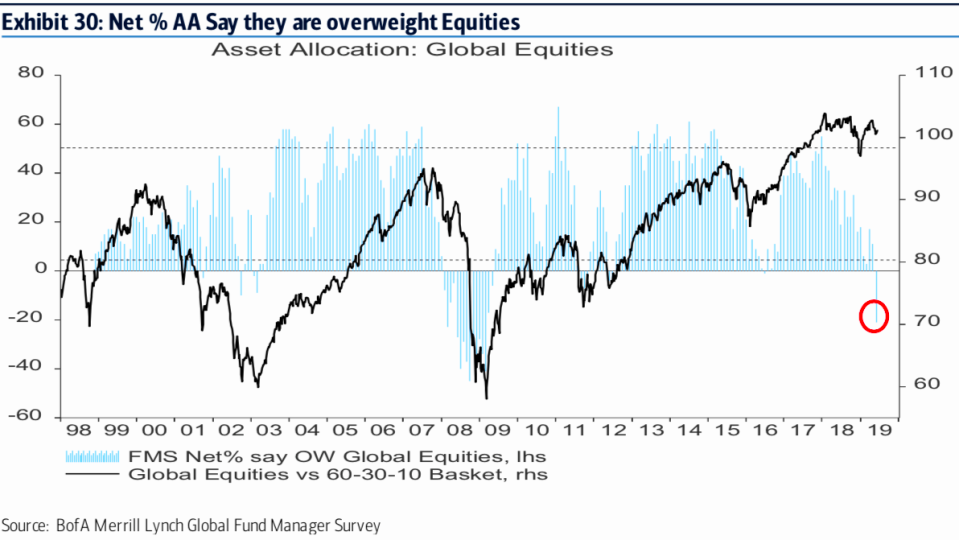Fund managers haven't been this bearish since the financial crisis thanks to the trade war
The results of Bank of America Merrill Lynch's latest fund manager survey (FMS) are "the most bearish" since the financial crisis.
During the month of June, the average fund manager flipped from overweight global equities to underweight. Specifically, a net 21% of fund managers were underweight, the lowest level since March 2009. That measure represents a 32-percentage point drop month over month, the second biggest one-month drop since the survey’s inception.
“FMS investors have not been this bearish since the Global Financial Crisis, with pessimism driven by trade war and recession concerns,” writes Bank of America's chief investment strategist Michael Hartnett. “The tactical ‘pain trade’ is higher yields and higher stocks, particularly if the Fed cuts rates on Wednesday.”
The survey, seen as a gauge of investor sentiment, polled a total of 179 fund managers with $528 billion in total assets under management between June 7 and 13.

Harnett notes that the fund managers’ asset allocation is “implying recessionary condition.”
Among the key takeaways is that the average cash levels for investors jumped to the highest level since the 2011 U.S. debt ceiling crisis, up to 5.6% from 4.6%.
Meanwhile, fund managers’ global growth expectations dropped by by the largest amount since the November 1994 survey during the “Tequila Crisis.” Approximately 87% of fund managers say the economy is “late-cycle,” the highest reading recorded.
Investors point to the trade war as their top concern, with 56% of the fund managers citing it as the top "tail risk," followed by monetary policy impotence at 11%, and U.S. politics and China slowdown at 9% each. Trade has remained the top tail risk for the last 14 monthly surveys.
The "most crowded trade" is long U.S. Treasuries at 27%, edging out U.S. tech (26%) for the first time. Other crowded trades include the U.S. dollar at 18%, followed by short European stocks at 9%.
Julia La Roche is a finance reporter at Yahoo Finance. Follow her on Twitter.
Read the latest financial and business news from Yahoo Finance
Follow Yahoo Finance on Twitter, Facebook, Instagram, Flipboard, SmartNews, LinkedIn, YouTube, and reddit.
